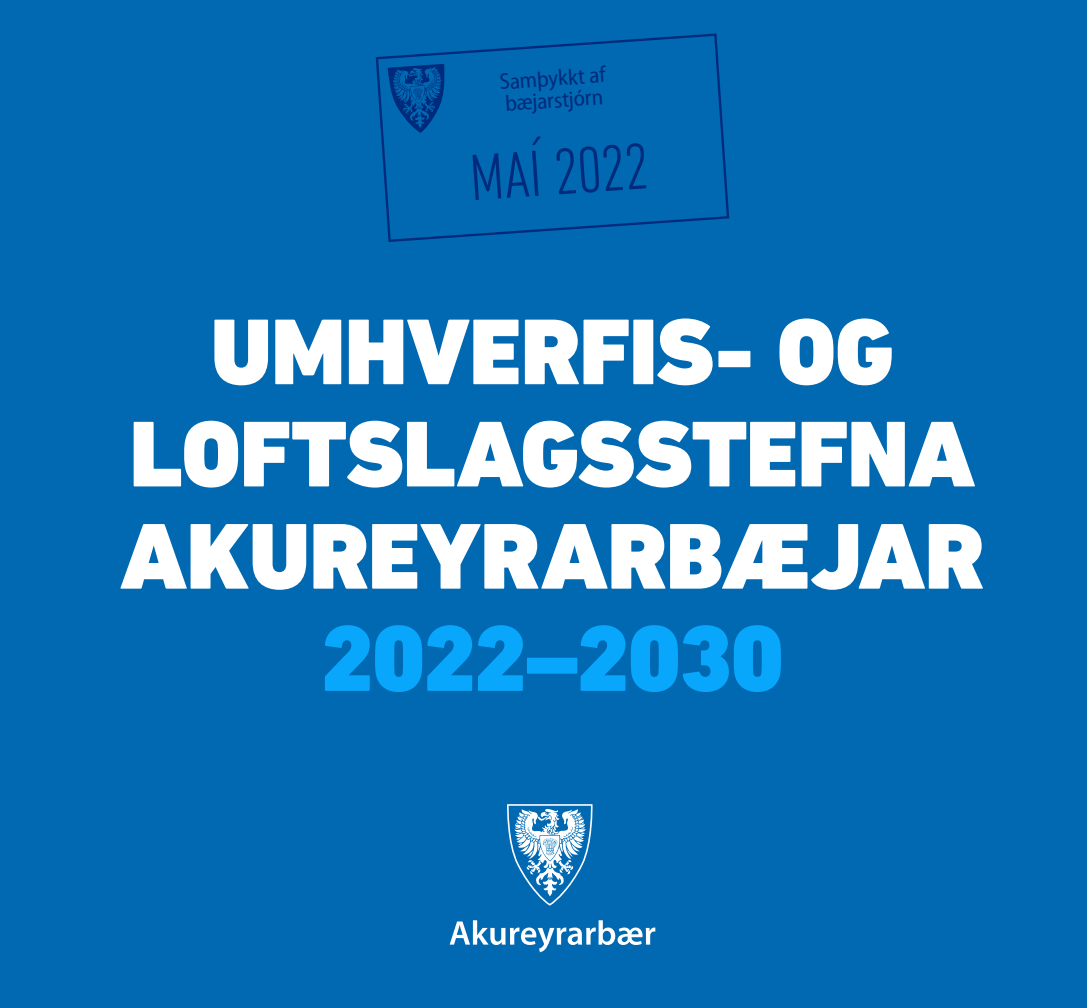The town of Akureyri
Akureyri's environmental and climate policy was approved on 10 May 2022.
The policy states that statistical information must be kept on the town's environmental issues, such as environmentally friendly energy sources, transport, air quality and waste. Below are key figures for recent years that demonstrate positive environmental performance.
The policy’s aim is to encourage the Akureyri’s residents to help achieve the town's environmental and climate goals.
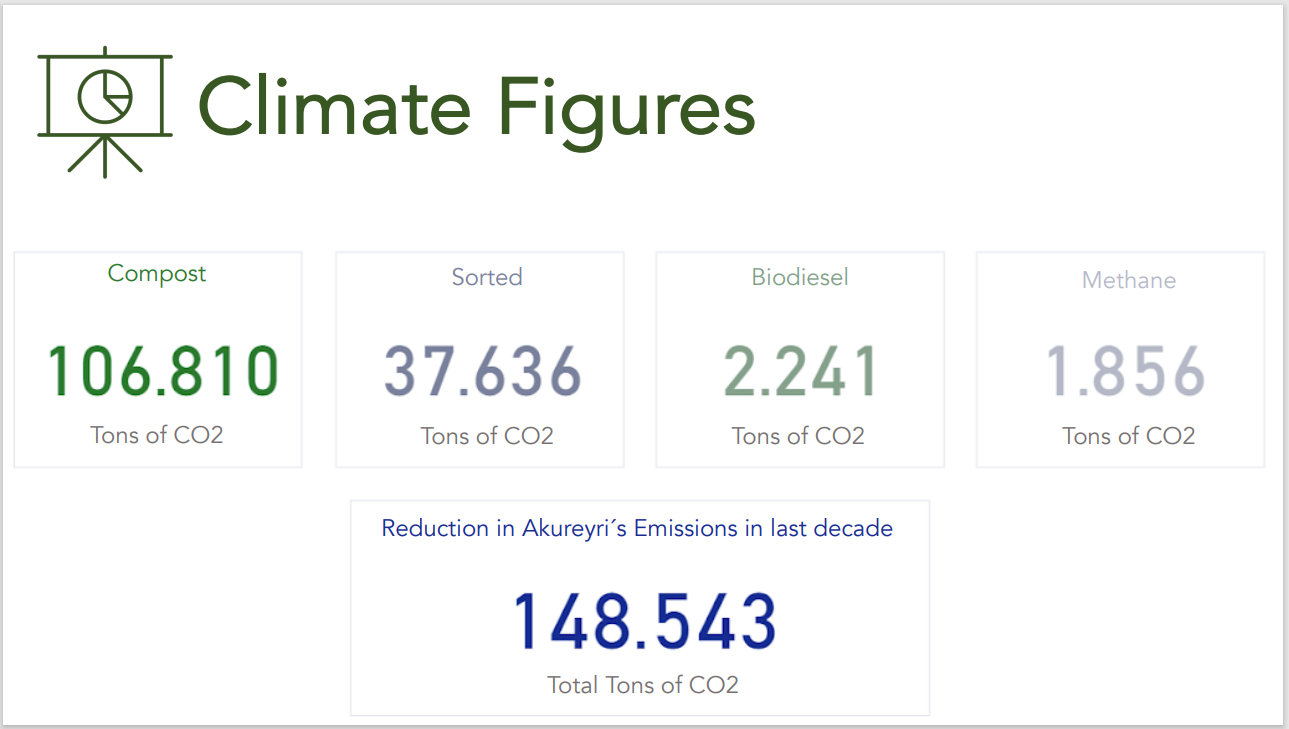
It can be seen that Akureyri’s environmental actions have resulted in a 150 thousand tonnes reduction in carbon dioxide emissions since 2019. Waste treatment has yielded the best results, especially the sorting of composted organic waste.
Passenger Car Fleet
One of Akureyri’s goals is to become at least carbon neutral, and one of the largest sectors of focus is transport. The number of passenger cars that run on electricity (in part or in full) has increased in recent years. Here you can find more information, or the webpage Choose an electric car gives you information about all electric cars available in Iceland.
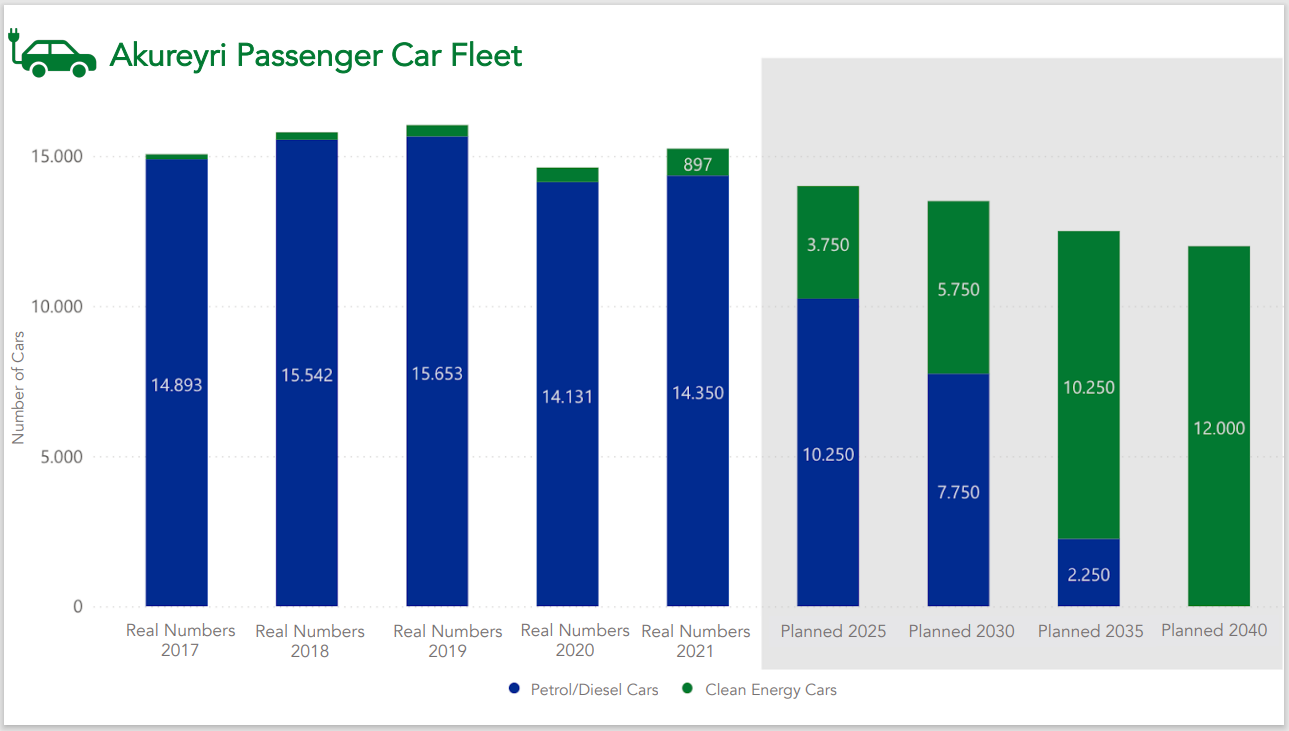
The figure shows the ratio between passenger cars in Akureyri that run on fossil fuels and those that run on environmentally friendly energy. The four pillars on the right are the town's goals in this regard by the year 2040.
Biofuels
Biodiesel can be processed from bio-waste materials, such as used cooking oil, fat and slaughter waste. Biodiesel can be added to ordinary diesel oil or used directly as a fuel in a conventional diesel engine without needing to change the engine. In Akureyri, biodiesel oil is produced from used frying oil at Orkey. A good relationship has been established with restaurants and the general public in the collection and reception of frying oil. Service companies collect the oil from restaurants. The public can collect and return oil to local stations through the project Energy From the Kitchen.
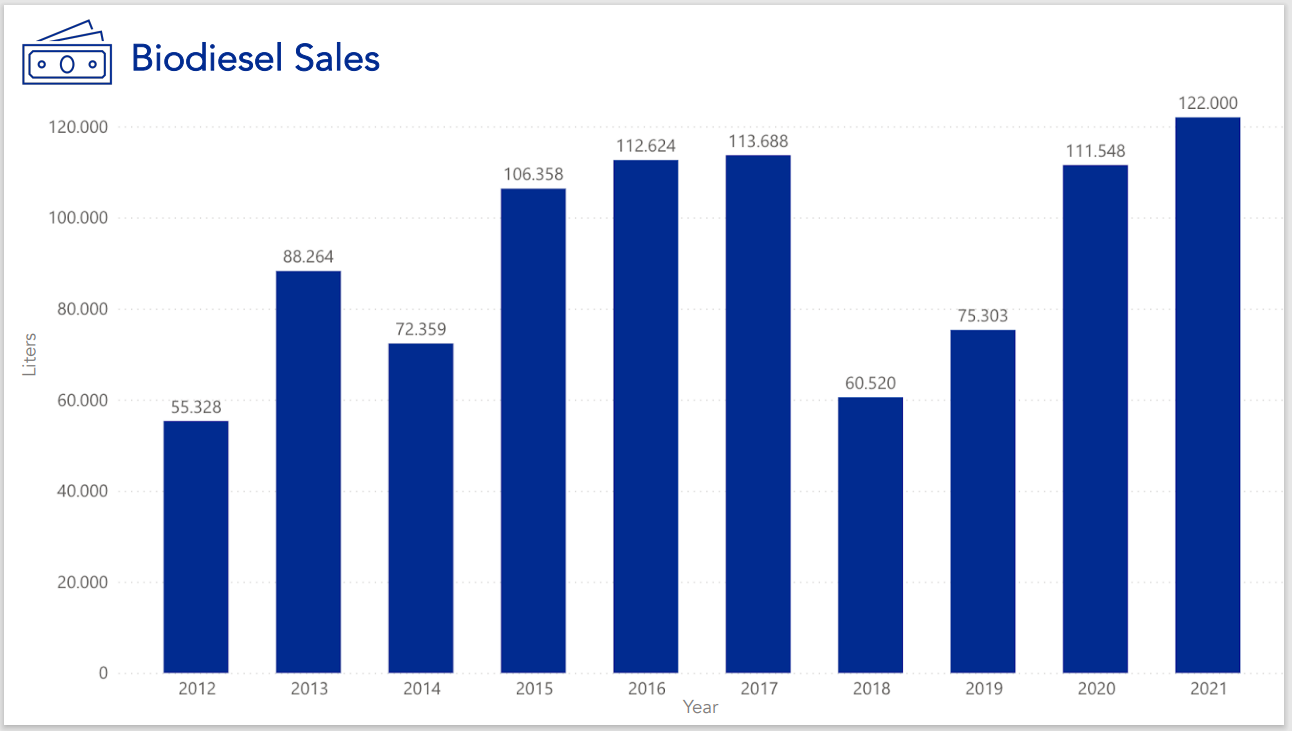
Methane (CH4) is a compound of carbon and hydrogen. It is the main source of biogas and has been used as car fuel. Landfill gas emitted directly into the atmosphere is ~25-30 times more harmful than CO2 formed by the combustion of methane. The utilization of methane, which would otherwise flow directly into the atmosphere, not only benefits the environment but is also economically viable. For every Nm3 (Newton cubic meter) of methane burned in an engine, one liter of imported fossil fuels is conserved. Norðurorka has been producing methane gas from the landfills in Glerárdalur above Akureyri since 2014.
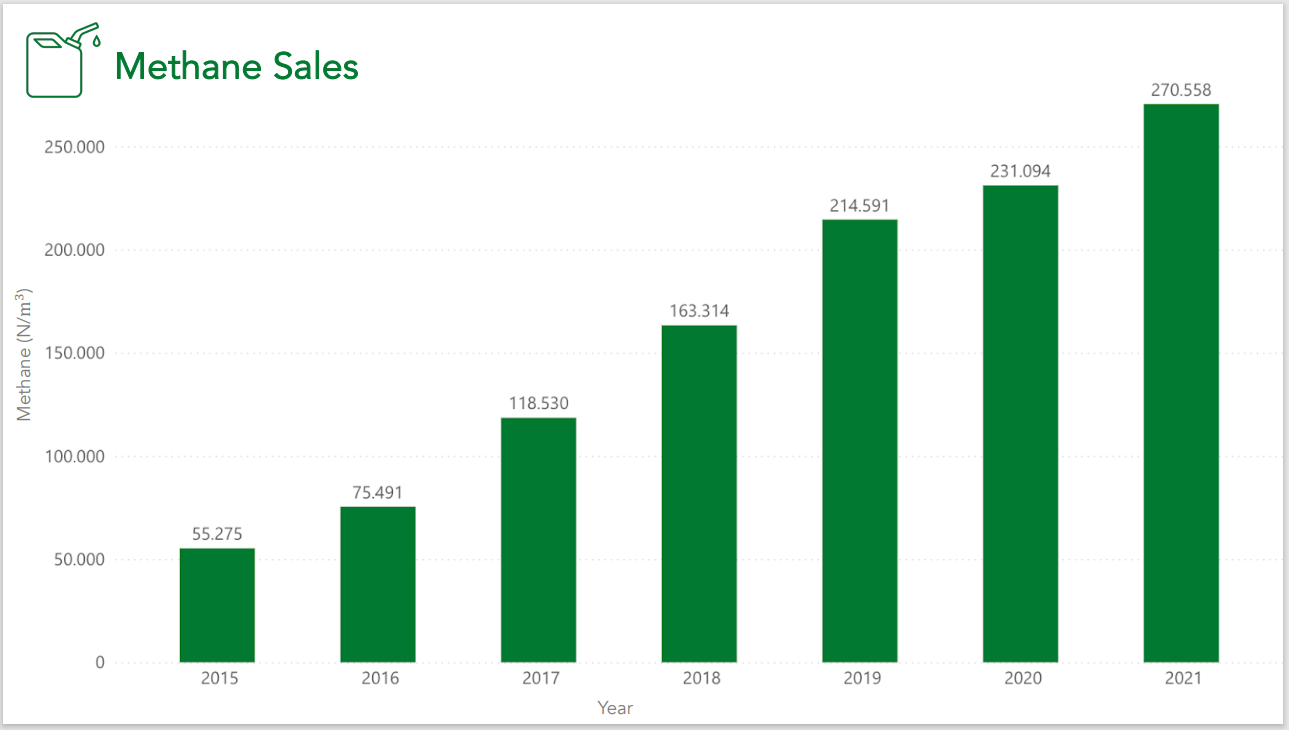
Waste
The government recently introduced new policies and legislative changes that will majorly impact waste management arrangements. The policy called Towards a Cycle Economy gives the local government a clear framework on how to collect and treat waste. Most importantly, it will be possible to raise the tariff for people who do not bother to sort their waste, a landfill tax will be imposed, and a ban placed on landfilling organic waste. Old waste can be recycled, such as organic waste used as fuel, fertilizer and soil. This has positive benefits environmentally and economically.
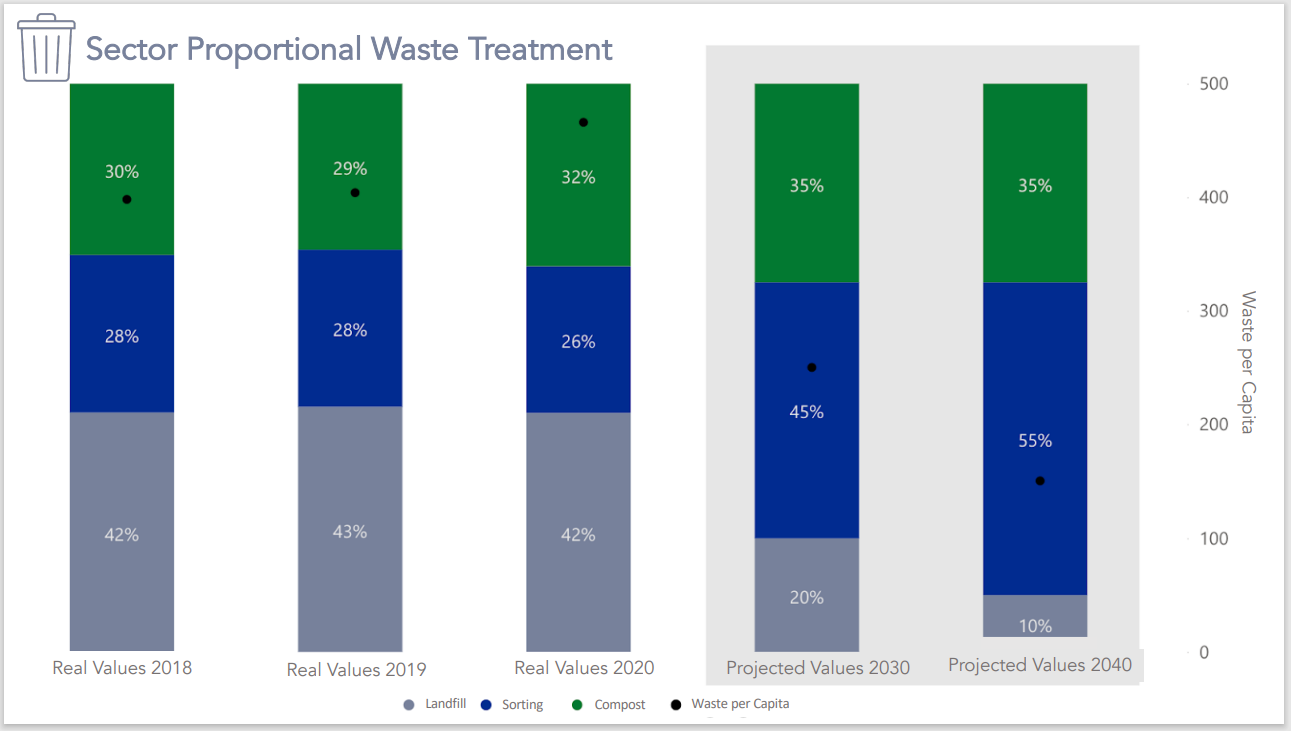
Fallorka
Fallorka buys and sells electricity throughout the country and builds power plants for electricity production. The company now operates two hydropower plants in Glerá and two in Djúpadalsá in
Eyjafjörður. Fallorka operates three charging stations in Akureyri and can charge eight cars at once. The stations are located by the Town Hall, Akureyri Swimming Pool and County Library.
Fallorka accounts for environmental factors in its operations and emphasizes continuous improvement. The company now has an exploration license to examine further possibilities for the power plants in Djúpadalur and Sölvadalur.
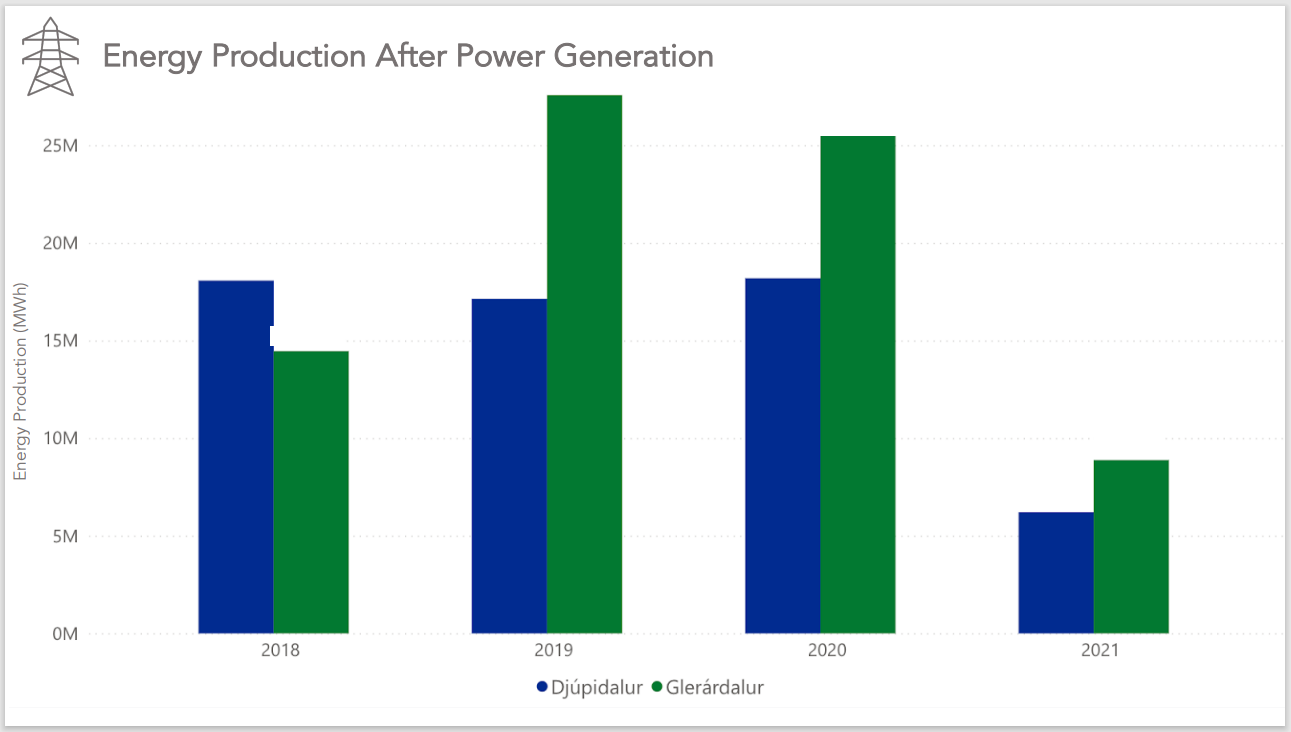
Air Quality
Pollution can affect the well-being of people with asthma or underlying diseases. Fine particles have a larger impact on people's health than coarse particles
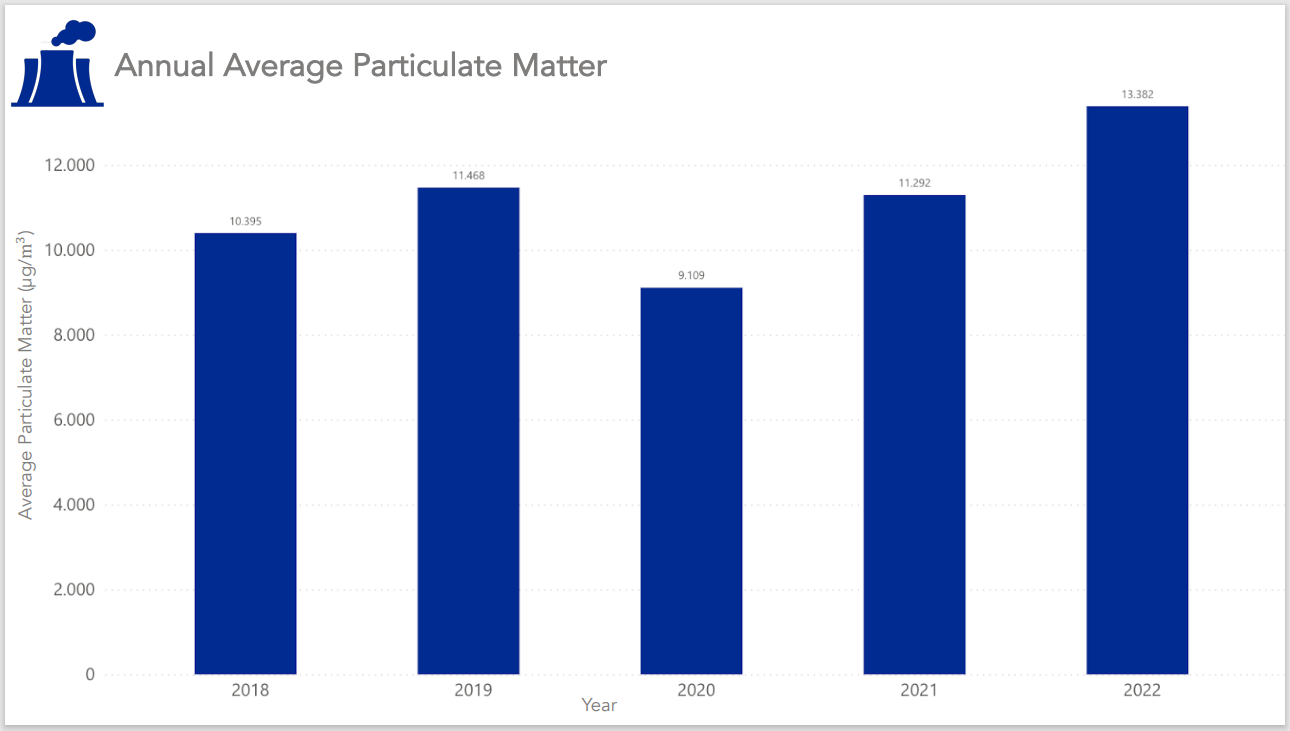
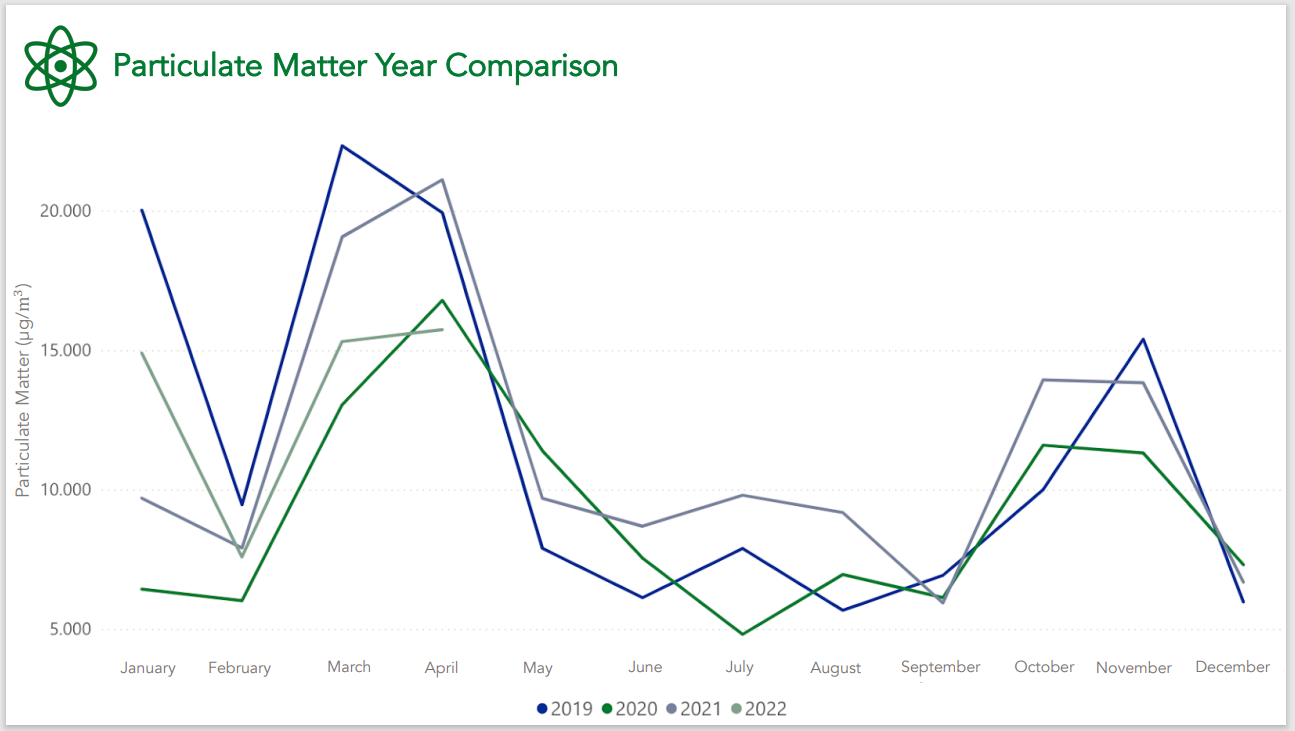
Akureyri is a member of the Global Covenant of Mayors for Climate & Energy (GCoM), which is a joint statement by mayors around the world. This statement declares their willingness to reduce greenhouse gas emissions, strengthen resilience to climate change, publish statistics on the performance of relevant cities in climate change and set a goal to improve those performances.
Akureyri is one of three municipalities in Iceland that have joined GCoM. The others are the cities of Reykjavík and Hveragerði. What all these members have in common is that they want to be at the forefront of climate change, promote public and private sector investment in climate-friendly solutions, and support ambitious regional cooperation in the spirit of sustainable development. With this statement, the municipalities want to show that local actions can significantly impact the world.
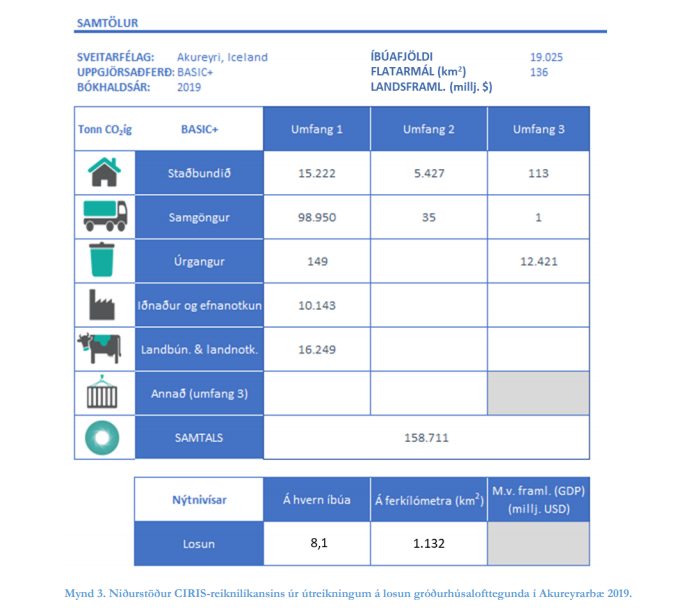
Akureyri's environmental and climate policy was submitted to the town council and approved on May 10, 2022.
The policy hopes to allow Akureyri to continuously strive for progress and ambition in the town's environmental and climate issues. The policy also wants to push Akureyri to remain at the forefront of environmental issues.

